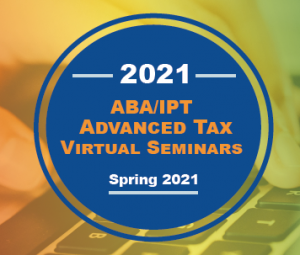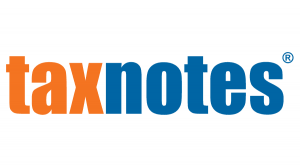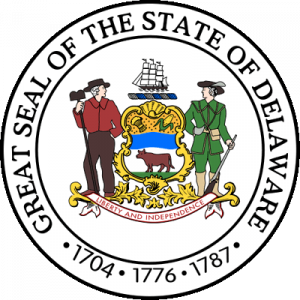On February 15, 2021, the Maryland Court of Appeals issued a decision in Clear Channel Outdoor, Inc. v. Director, Department of Finance of Baltimore City, Case No. 24-C-18-001778 (Md. 2021), upholding the constitutionality of a local ordinance that imposes an annual excise tax on businesses selling advertising space on off-site billboards. The tax in question applies only to businesses that own or control off-site billboards in the City of Baltimore i.e., billboards that are not located on the premises where the goods or services being advertised are offered for sale. Continue Reading ›
Oregon Tax Court Rejects Department’s Attempt to Ignore Measure 50 Limitation
In Tesoro Logistics Northwest Pipeline LLC v. Department of Revenue (002), the Oregon Tax Court, Regular Division, held that although a unit of property acquired by one centrally assessed company from another qualified as “new property” for purposes of Or. Const. Art. XI, § 11 (Measure 50), the unit of property’s existing maximum assessed value (MAV) was preserved in the hands of the new owner. Tesoro Logistics Nw. Pipeline LLC v. Dep’t of Revenue, No. TC 5252, 2021 WL 6700471 (Or. Tax Ct., Reg. Div., Feb. 19, 2021). As a result, the Oregon Department of Revenue was not entitled to redetermine the MAV on account of the acquisition.
Delaware Court Invalidates Division’s NOL Limitation Policy
Pillsbury State & Local Tax special counsel Zachary Atkins explores the recent Delaware court decision of Verisign and the implications it has for taxpayers in Tax Notes State’s SeeSALT Digest.
Maryland Becomes First U.S. State to Enact Controversial Digital Advertising Tax to Immediate Challenge
On February 12, 2021, Maryland legislators voted to override Gov. Larry Hogan’s (R) veto of H.B. 732, making Maryland the first state in the nation to impose a digital advertising tax. While Maryland’s enactment of the bill is a first, other states have impending digital advertising tax bills, such as New York, Connecticut, Indiana, Nebraska, Washington, Montana and Massachusetts. Maryland’s digital advertising tax, which becomes effective March 14, 2021 (30 days after the Governor’s veto), has been preemptively challenged in U.S. District Court. Continue Reading ›
COST Central West Regional State Tax Webinar
Pillsbury SALT attorneys Carley Roberts, Annie Huang and Robert Merten III will present at the COST Central West Regional State Tax Webinar on March 24.

ABA/IPT’s 2021 Advanced Property Tax Seminar
Pillsbury SALT partner Breann Robowski will present during ABA/IPT’s 2021 Advanced Property Tax Seminar on March 18.

COST’s 2021 Sales and Transaction Tax Webinar
Pillsbury SALT partner Craig Becker will present during COST’s 2021 Sales and Transaction Tax Webinar on February 25. Craig is partnering with Harley Duncan (KPMG), Jordan Goodman (HMB) and Mark Yopp (Baker & McKenzie) to present on the topic, “Wrangling in Local Transaction Taxes.”

Connecticut’s Tax Gambit: Connecticut Considers Convenient Position on “Convenience of the Employer” Rule
The Connecticut House of Representatives is considering multiple proposals that would permit Connecticut residents and part-year residents to take credits for tax paid to other states while working from Connecticut during the pandemic. Connecticut law currently allows credits for tax paid to another state only if: (1) the individual was physically located in such other state while working; or (2) the individual is a resident of a state that applies the “convenience of the employer” sourcing rule. Two bills have been introduced, both of which would expand the allowable credits only for Connecticut residents and part-year residents for the tax year beginning January 1, 2020. H.B. 6183; S.B. 873. Continue Reading ›
for tax paid to other states while working from Connecticut during the pandemic. Connecticut law currently allows credits for tax paid to another state only if: (1) the individual was physically located in such other state while working; or (2) the individual is a resident of a state that applies the “convenience of the employer” sourcing rule. Two bills have been introduced, both of which would expand the allowable credits only for Connecticut residents and part-year residents for the tax year beginning January 1, 2020. H.B. 6183; S.B. 873. Continue Reading ›
TEI’s Wisconsin Chapter Meeting
Pillsbury SALT attorneys Carley Roberts, Zachary Atkins, Nicole Boutros and Evan Hamme will present during Tax Executive Institute’s Wisconsin Chapter Meeting on February 18. Continue Reading ›
Continue Reading ›
How to Be Reasonable When Reasonably Approximating the Market: Part I
Partner Carley Roberts and counsel Robert Merten III authored Part 1 of a multi-part series in Tax Notes State’s SeeSALT Digest to review the landscape of market-based sourcing rules and provide an in-depth focus on various states’ use of reasonable approximation.

Read more here. Continue Reading ›




